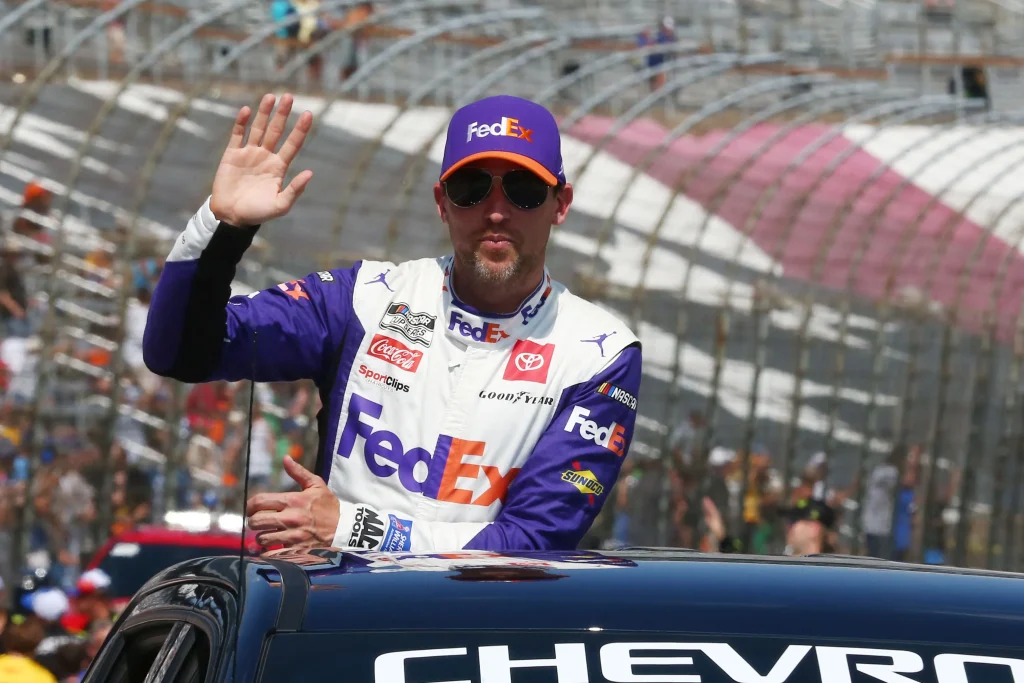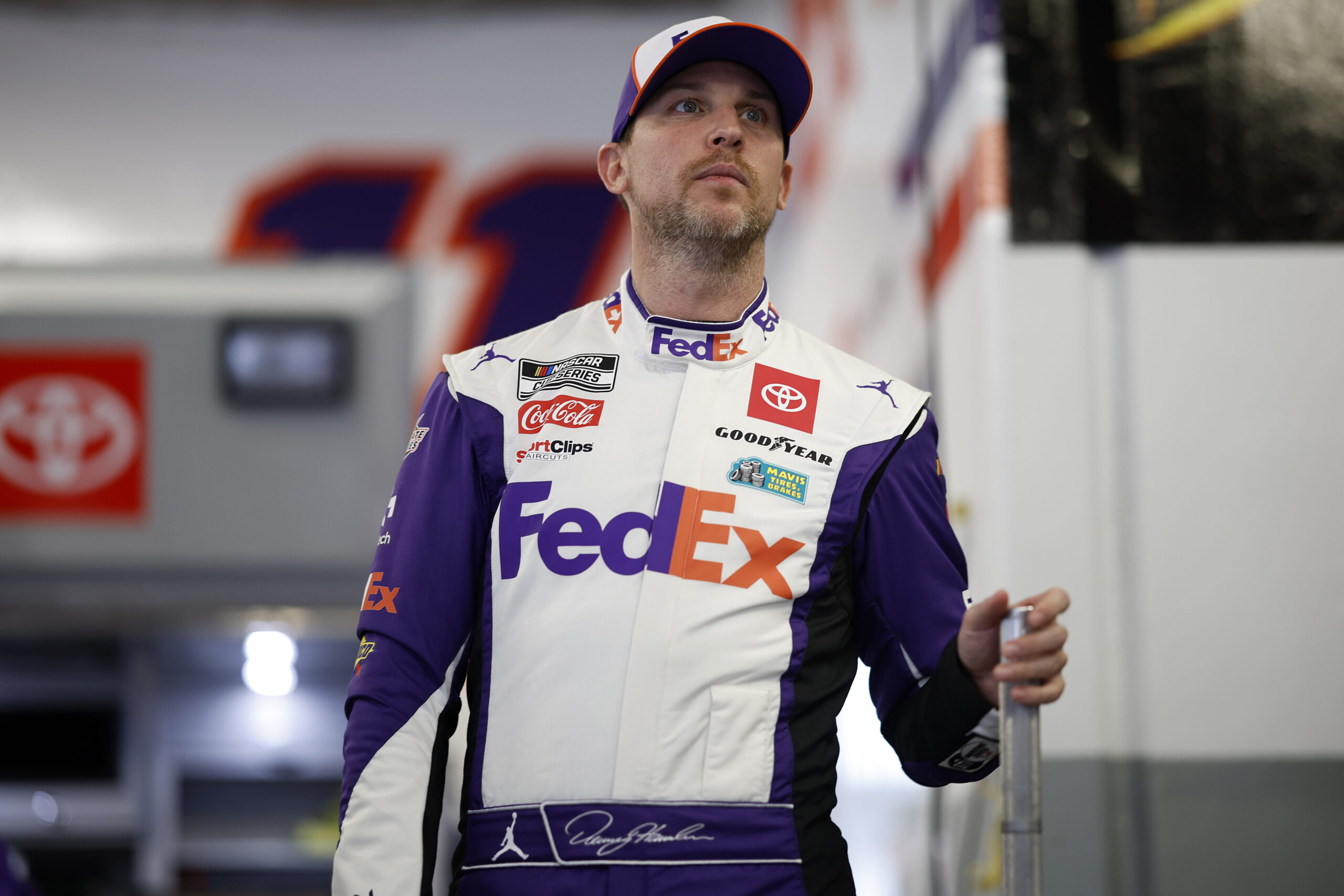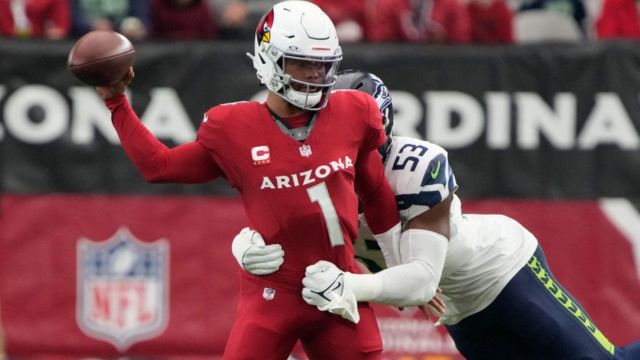In the early hours of the morning, NASCAR fans were treated to a surprising exchange on social media between Denny Hamlin, a prominent NASCAR Cup Series driver, and Marcus Smith, the president of Speedway Motorsports.
The conversation quickly turned into a heated debate over track reconfigurations and the quality of recent repavings at various NASCAR-owned tracks.
Speedway Motorsports LLC, which owns several key NASCAR venues including Atlanta Motor Speedway, Charlotte Motor Speedway, and Texas Motor Speedway, has been involved in numerous track repaving projects in recent years.
However, some of these repaves have faced criticism from fans and drivers alike due to issues with the new surfaces.
The most recent track to undergo repaving was Sonoma Raceway, where the new asphalt began showing signs of wear and tear shortly after its completion. This prompted Hamlin to voice his concerns on social media, suggesting that similar problems might arise at North Wilkesboro Speedway in the future.
What ensued was a back-and-forth exchange between Hamlin and Smith, with both parties expressing their views passionately. Hamlin criticized Speedway Motorsports’ track reconfigurations, citing examples like Texas, Kentucky, and Bristol, where changes were made without driver input and led to mixed results.

Smith defended his company’s decisions, pointing out that they take risks in pursuit of improvement, even if not all endeavours yield the desired outcome. The conversation took a personal turn as Hamlin and Smith exchanged barbs about each other’s professional achievements and family connections.
Related Articles:
- ESPN, FOX, and Warner Bros. Discovery Unveil Groundbreaking Sports Streaming Venture
- California Fraud Ring Busted: Four Arrested with Counterfeit IDs, Passports, Military Cards
- Tim McCreadie Leaves Paylor Motorsports Team
The incident sheds light on the passionate nature of individuals within the NASCAR community and underscores the challenges faced by track officials in balancing innovation with fan and driver expectations.
It also serves as a reminder of the power of social media in shaping public discourse and the importance of conducting oneself with professionalism, even in the heat of the moment.















+ There are no comments
Add yours